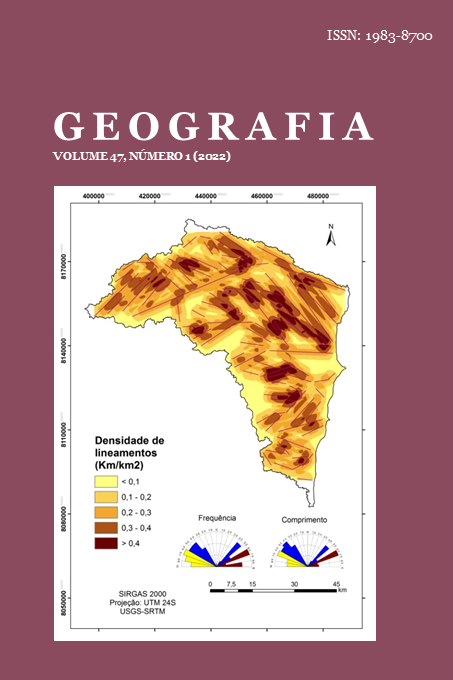MERCOSUR AND PARLASUR: ANALYSIS OF CONDITIONS THAT COMPETE TO DETERMINE ADVANCES AND RETREATS IN INTEGRATION
DOI:
https://doi.org/10.5016/geografia.v47i1.16416Abstract
The establishment of PARLASUR, based on the former MERCOSUR Joint Parliamentary Committee in December 2006, represented an advance for the bloc, together with other institutional innovations promoted since the 2000s. However, its member countries constantly suffer from the occurrence of parliamentary, judicial, and military coups, such as those that occurred recently in Bolivia, Brazil, Paraguay, in addition to the internal factors concerning local political disputes and the macroeconomic scenario. Therefore, the purpose of this study is to relate the internal and geopolitical factors that account for the limitations to the full development of MERCOSUR and PARLASUR as a political authority of the bloc. At such a conjuncture, we seek to unveil, based on bibliographic survey and data collection, the main determinants that account for the advances and setbacks, especially throughout the 21st century. The general conclusion is that there is a set of institutional, economic (internal and external) and geopolitical factors, which, combined, have the power to influence either by enabling or delaying development.
Downloads
Published
Issue
Section
License
The authors maintain the copyright and grant GEOGRAFIA the right of first publication, with the articles simultaneously licensed under the Creative Commons BY 4.0 License, which allows sharing and adapting the articles for any purpose, as long as appropriate credits and provisions of image rights, privacy or moral rights. Other legal attributions can be accessed at: https://creativecommons.org/licenses/by/4.0/legalcode.en.
Geography, Rio Claro, SP, Brazil - eISSN 1983-8700 is licensed under the Creative Commons BY 4.0 License.





